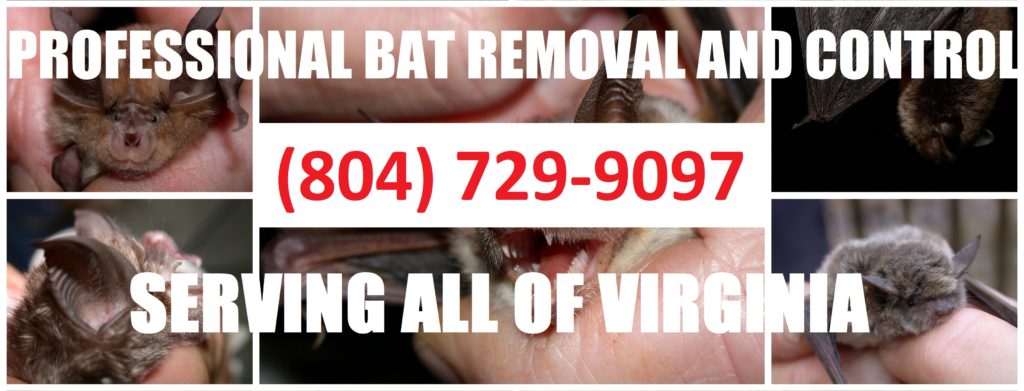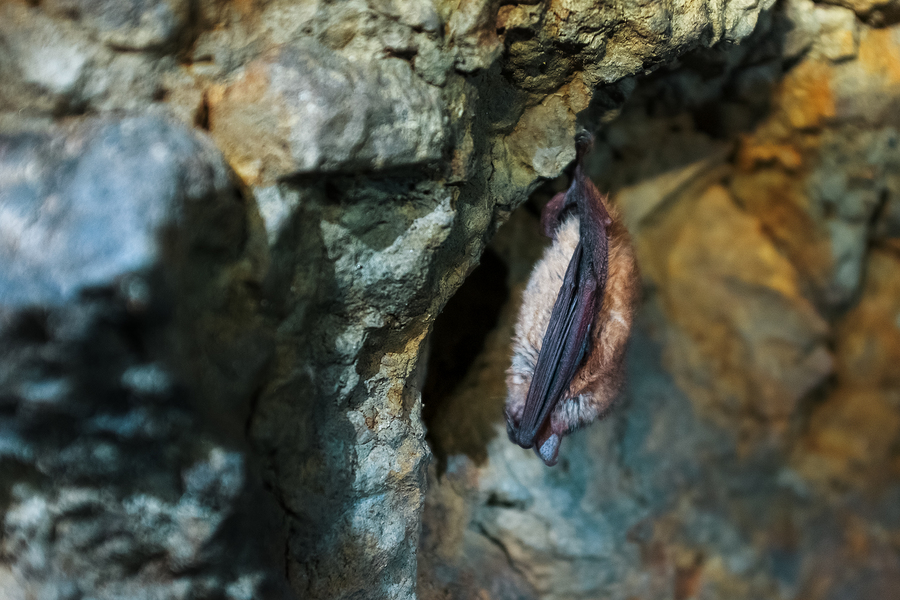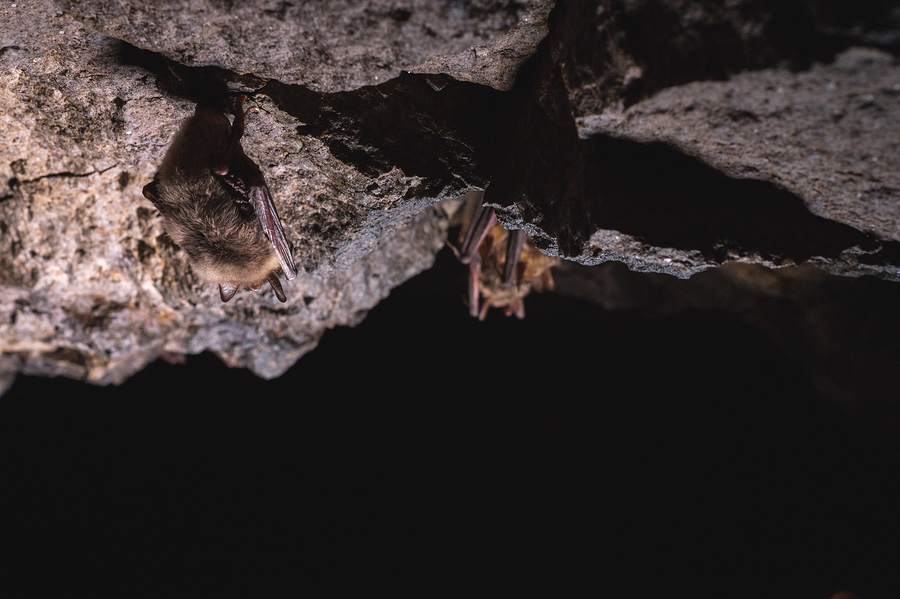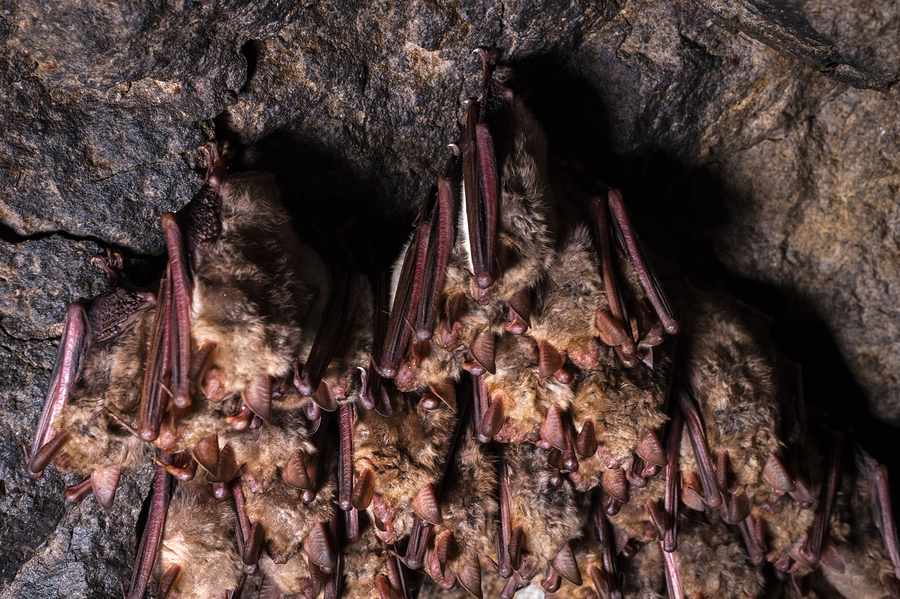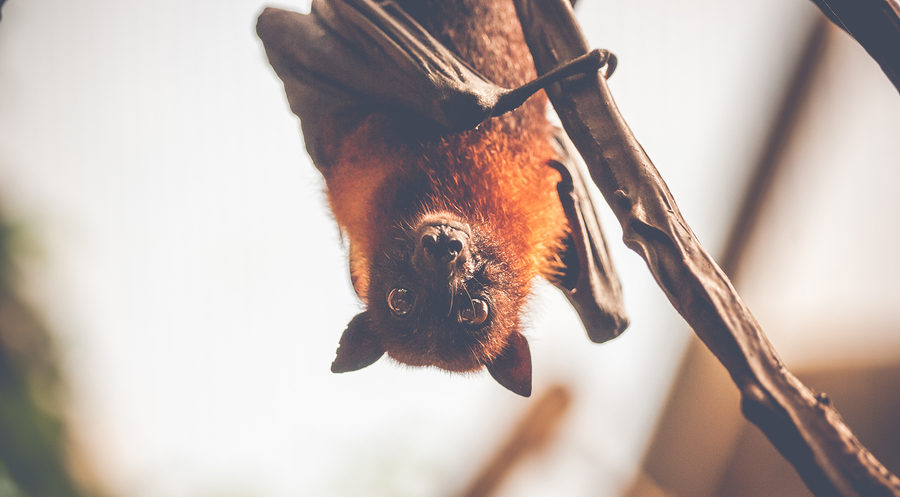When it comes to the Rabies virus, one of the most tell-tale signs that an animal is infected is if it is active during the daytime even though it is a nocturnal species. Daytime behavior is often seen in several rabid nocturnal species of wildlife, including raccoons, possums, and bats. In fact, bats are a prime known carrier of the Rabies virus, but that doesn’t mean that all carrier bats are actually infected. So, does seeing a bat, or some other type of nocturnal animal, out and about during the day a sign that it is infected with Rabies? What else could it mean?
Continue reading to learn the answers to these questions, as well as, the common signs of a rabid bat, and what you should do if you ever one.
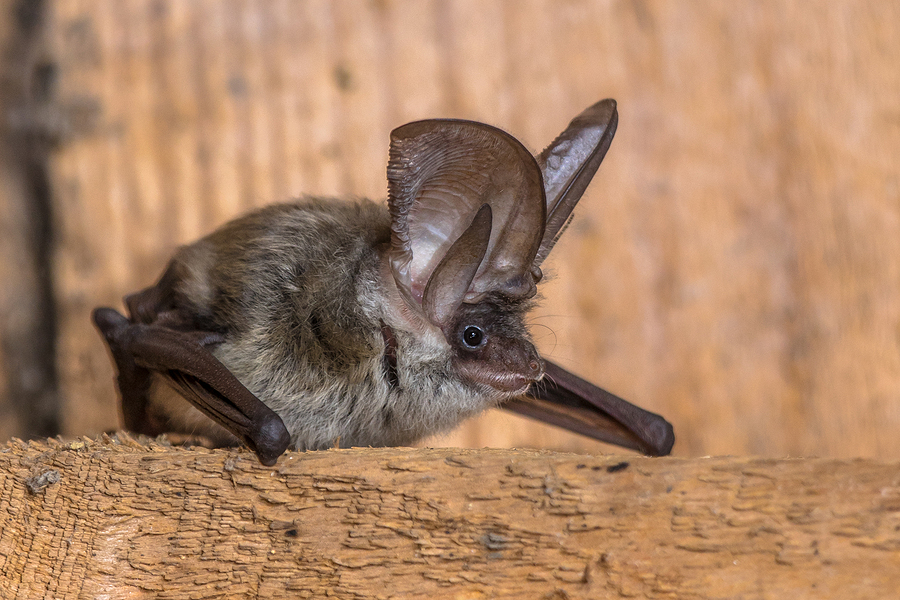
Bats and Rabies
As mentioned, bats are known carriers of the Rabies virus, but not all bats that are carriers are infected. In fact, some carriers of Rabies never become rabid, nor show signs of the illness. Also mentioned, one of the most common signs that a bat has Rabies is if it is outside and awake during the day. Bats are nocturnal mammals, meaning they are active from dusk to dawn, rather than dawn to dusk like humans.
So, when a bat is out and active during the day, it can be deemed as odd behavior. But this does not mean it has Rabies. A bat exhibiting these kinds of behaviors might be ill with something else, dying, or injured. It could also be an adolescent bat still honing its flying skills, or lost and trying to find its way back to its colony. See our blog, “What You Want to Know About Bats and Rabies” to learn more about bat behavior and the Rabies virus.
Additional Signs of a Rabid Bat:
⚠ The Bat is on the Ground – Bats do not sit or lay on the ground, so if you see a live one on the lawn or grass, you can safely assume it is sick, perhaps with Rabies.
⚠ The Bat is Not Scared – Like finding a bat on the ground, if you can walk toward a bat, and it does not act scared or threatened, you should assume that it is ill.
⚠ The Bat Cannot Fly – If a bat is outside, or on the ground, and it does not fly away, even if you approach it, it is very likely that the bat is sick, and it could be rabid.
What to Do If You Find a Bat
Under no circumstances should you ever attempt to touch, trap, capture, harm, or kill a bat. Bats are not just known carriers of several transmissible diseases, such as Rabies and lice, they are also biters, and can break the skin if provoked. Furthermore, some bats are protected under federal and state law, so you are not allowed to tamper with them at all. Instead, contact a wildlife rescue company for emergency bat removal service. See our blog, “How to Remove a Flying Bat in the House” if you ever spot one indoors.
Where To Get Trusted Bat Removal and Control Service in Virginia
Contact Virginia Bat Pros at 804-729-9097 for safe and humane Virginia bat removal and control at the right price. Regardless of the size or scope of your bat abatement and cleanup needs, we have the experience and resources necessary to remedy your bat problem in no time at all. Our professionals are focused on safe and effective results, but more importantly, our client’s complete satisfaction. Contact us anytime for free estimates, advice, and assistance.
